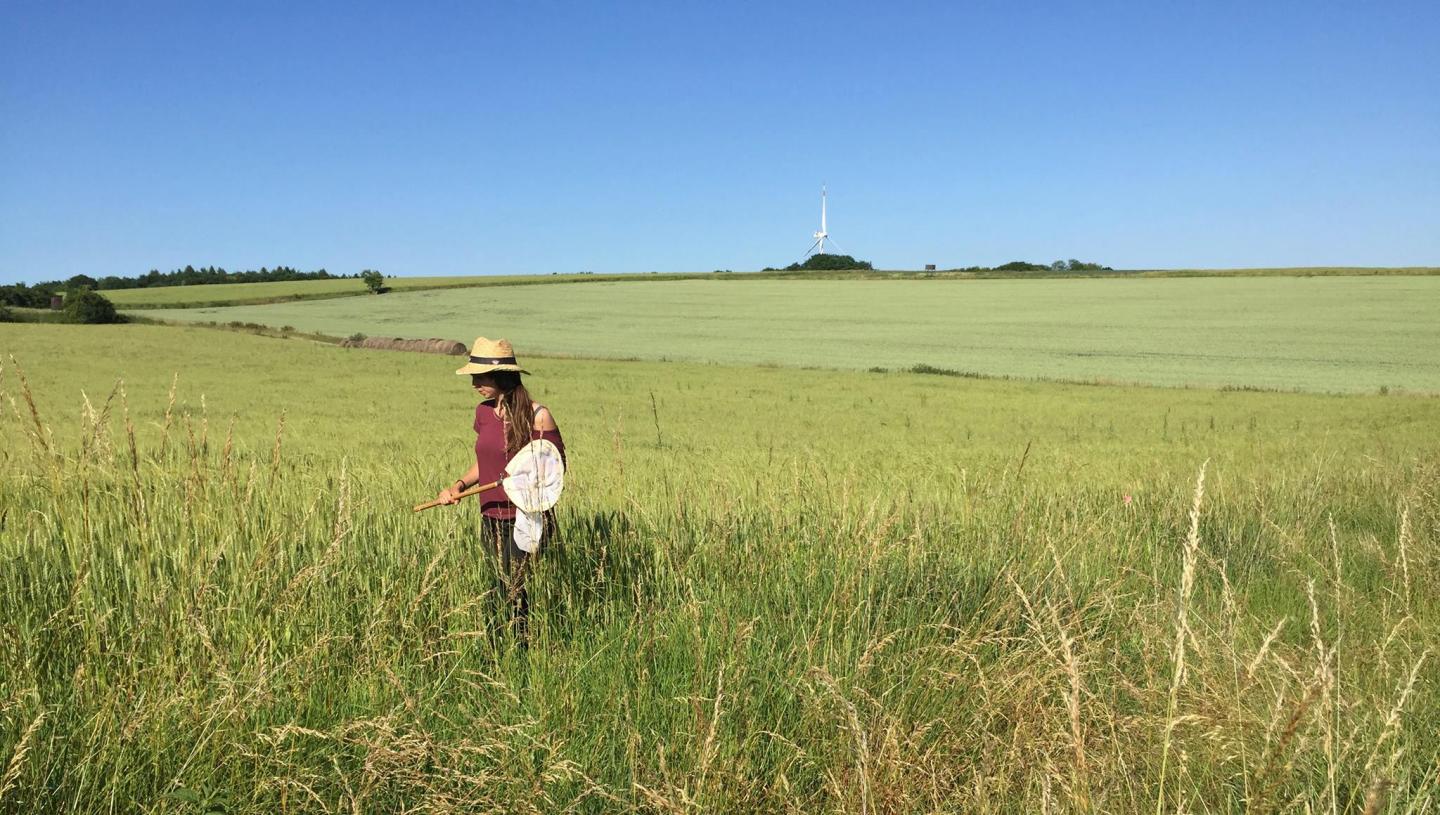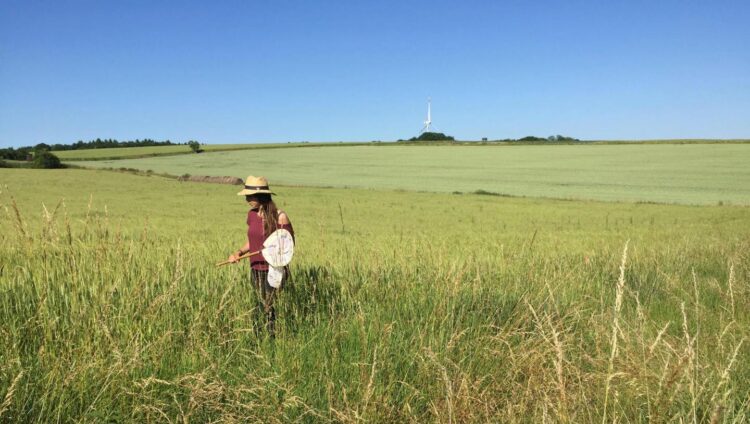Research team led by University of Göttingen investigates flower strips, organic farming and small crop fields

Credit: Bettina Donkó
Sowing strips of wildflowers along conventional cereal fields and the increased density of flowers in organic farming encourage bumblebees as well as solitary wild bees and hoverflies. Bumblebee colonies benefit from flower strips along small fields, but in organic farming, they benefit from large fields. This research was carried out by agroecologists from the University of Göttingen in a comparison of different farming systems and landscape types. The results of the study have been published in the Journal of Applied Ecology.
Organic farming and flower strips are financially supported by the European Union in order to enhance populations of wild bees and hoverflies, which are major pollinators of most crops and wild plants. The research team selected nine landscapes in the vicinity of Göttingen along a gradient of increasing field size and then analysed the wild bees and hoverflies in each landscape at the edge of an organic wheat field, in a flower strip along conventional wheat, and at the edge of a conventional wheat field without flower strips. The result: most pollinators were found in the flower strips, but organic fields, characterized by more flowering wild plants than conventional fields, were also beneficial. Bumblebee colonies established on the margins of fields as part of the project produced more queens in flower strips when located in landscapes with small conventional fields. In contrast, large areas were particularly advantageous when it came to flower-rich organic fields. Flower strips offer a high local density of pollen and nectar, but organic areas compensate for this by their increased area.
“The results show that action at both local and landscape level is important to promote wild bees,” emphasises Costanza Geppert, first author of the study. The investigations were part of her Master’s thesis in the Agroecology Group in the Department of Crop Sciences at the University of Göttingen. “Wild bees and other insects cannot survive in a field simply by making improvements to that field, they depend on the structure of the surrounding landscape,” adds Head of Department Professor Teja Tscharntke. “Therefore, future agri-environmental schemes should take more account of the overall landscape structure,” adds Dr Péter Batáry who initiated the study.
###
Original publication: Costanza Geppert et al. (2020): Agri-environment schemes enhance pollinator abundance and richness, but bumblebee reproduction depends on field size. Journal of Applied Ecology: DOI: 10.1111/1365-2664.13682
Alternative link: https:/
Professor Teja Tscharntke
University of Göttingen
Faculty of Agricultural Sciences – Agroecology Group
Grisebachstraße 6, 37077 Göttingen, Germany
Tel: +49 (0)551 39-9209
Email: [email protected]
http://www.
Costanza Geppert
University of Padua
Email: [email protected]
Media Contact
Melissa Sollich
[email protected]
Original Source
https:/
Related Journal Article
http://dx.





